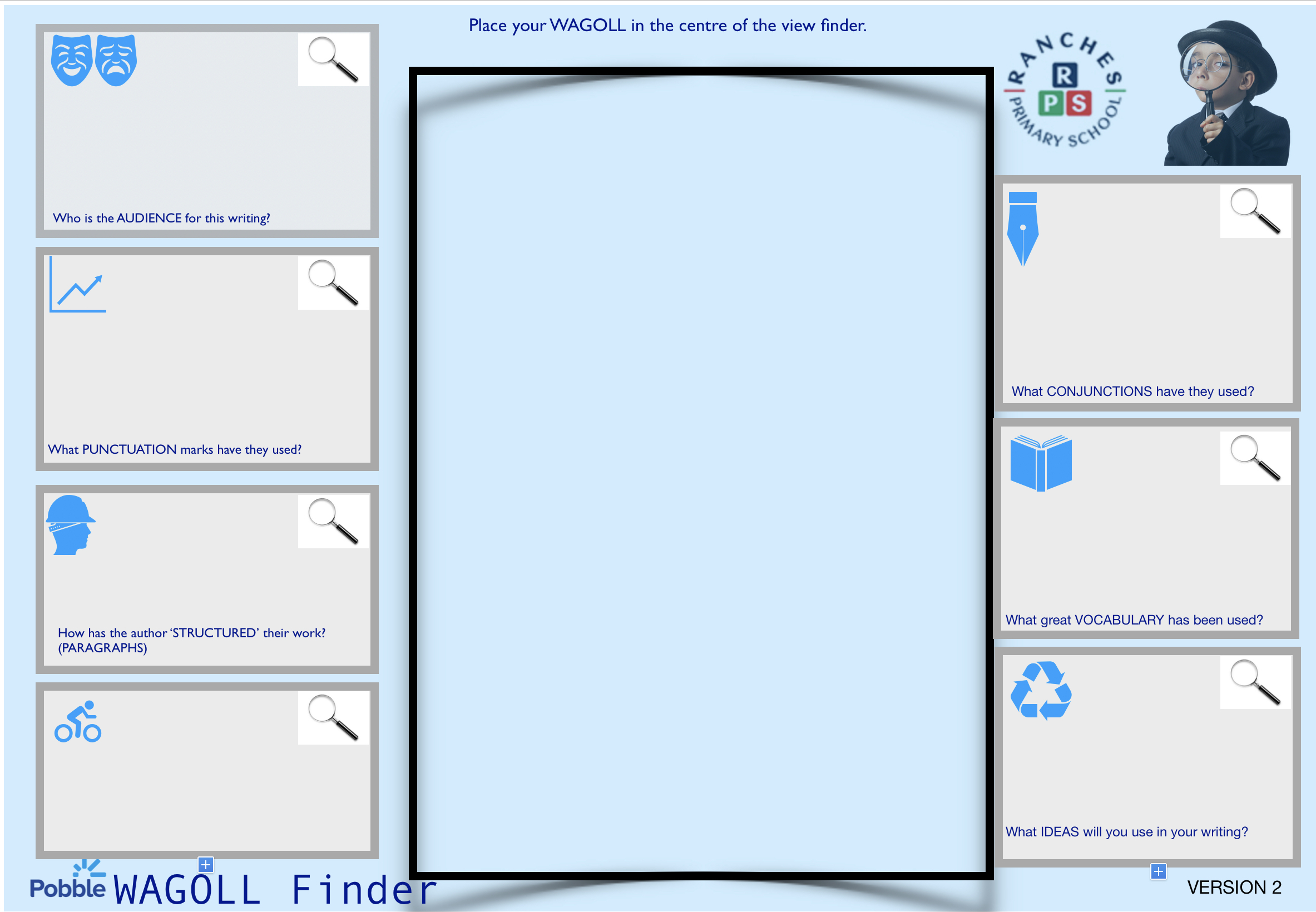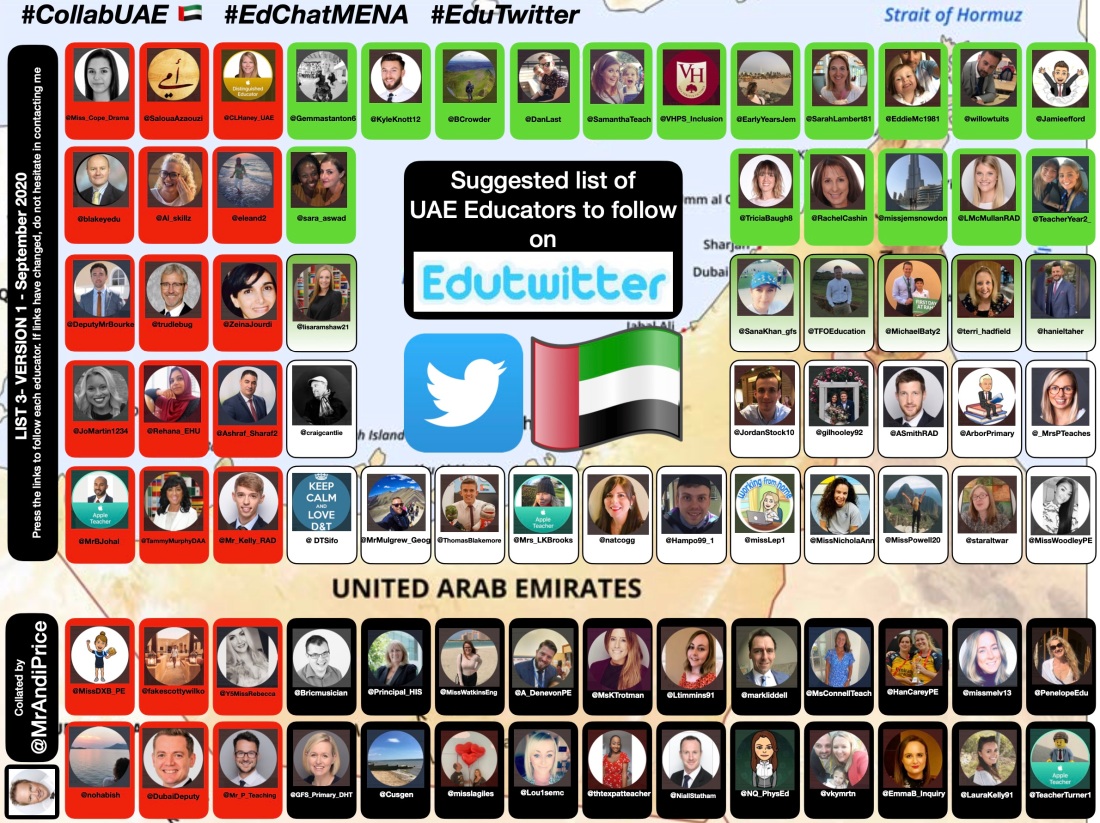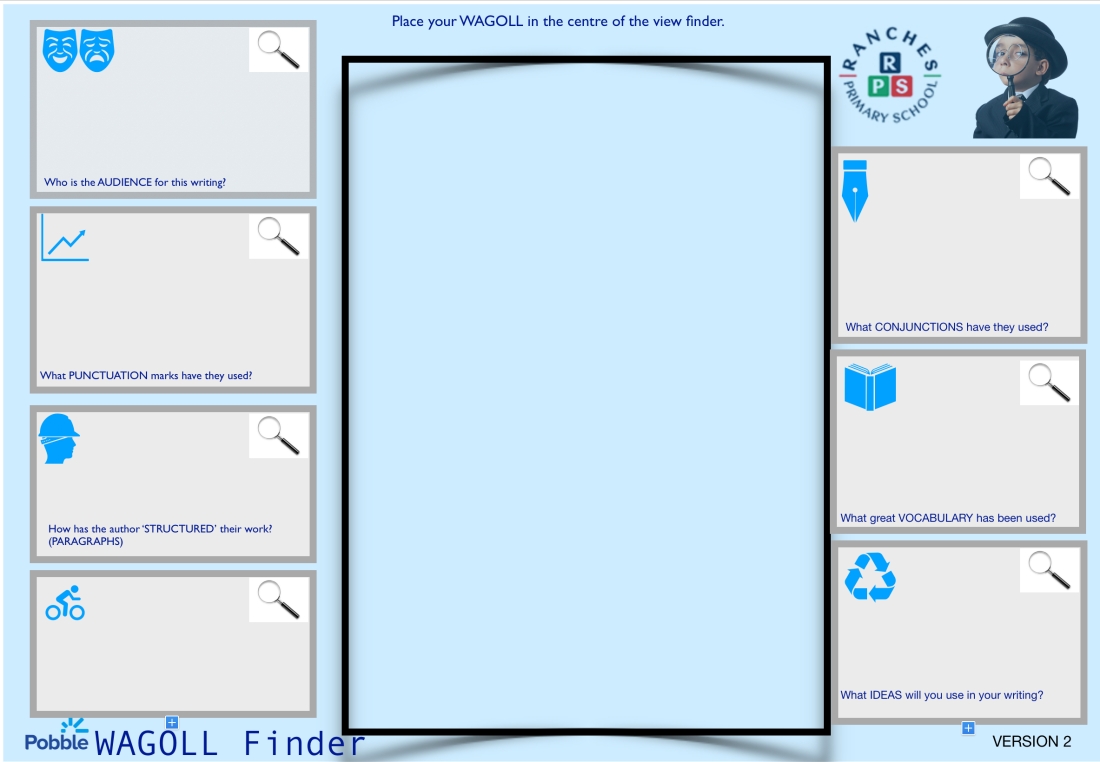Here is the 4th interactive list of teachers to follow on EduTwitter based in the UAE. Please feel free to copy, print or share on presentations. If you would like to suggest anyone to be included please contact me through Twitter @MrAndiPrice
Category: Uncategorized
Even More #CollabUAE 🇦🇪 Educators to follow on #EduTwitter (Part 3)
Here is the 3rd interactive list of teachers to follow on EduTwitter based in the UAE. Please feel free to copy, print or share on presentations. If you would like to suggest anyone to be included please contact me through Twitter @MrAndiPrice
WAGOLL Finder (Pobble)
Please find attached two versions of the WAGOLL Finder I use with my Year 6 class (PDF and Pages).

Please feel free to adapt for use in your classroom. Would love to see what you do with it, tag me on Twitter @MrAndiPrice.
Dubai teachers dispute report that says only 55 per cent of pupils read for pleasure
 Spending time on the internet and gaming are keeping children from developing a love of reading, experts said.
Spending time on the internet and gaming are keeping children from developing a love of reading, experts said.
Only 55 per cent of children in Dubai’s private schools read for pleasure, according to a report by the Knowledge and Human Development Authority.
Neil Matthews, principal at Gems Wellington Academy in Al Khail, believes busy lifestyles are to blame for children not taking to reading.
He said it is key to promote a love for reading right from the age children join school. His school tries to instil a love for reading by introducing children to picture books as well as reading aloud to younger ones.
“It’s about bringing stories to life. If children can get their love for reading at a young age, it will stay with them. The older the children become, the harder it is to keep them motivated.
“Technology can be a distraction these days and so it’s important that we look for every opportunity to get children to read,” Mr Matthews said.
The school does sessions of paired reading where children from higher classes go to the juniors’ classrooms and read to them.
“Our older children love going to the younger ones’ classes to read stories because it gives their reading a purpose,” he said.
_____________
Read more:
Second case of mass exam cheating under investigation
Dubai private schools must diversify or make prices more competitive, experts say
Editorial: An expensive education is not necessarily the best
_____________
In secondary school, it becomes a bit more of a challenge to motivate children to read, the principal said. The school also runs a competitive programme called Accelerated Reader that rewards children for the number of books and the amount of words they read. This has encouraged many children to read, Mr Matthews said.
“Reading has a greater profile than when I first arrived in the UAE four years ago. Through the Year of Reading, there is a growing commitment to reading,” he said.
The school also encourages parents to read to children because such a family activity can help to motivate children.
“If we role model reading then it will encourage children to read. People are so busy that it’s difficult to find the time to read to children.
“I think it’s important that we give children dedicated time while reading books or telling stories or just telling them about your day,” he said.
Mr Matthews believes that children need to be taught how to use mobile devices in a responsible manner while ensuring they get the balance right.
“Technology is important but it has to be balanced with the skill of reading,” he said.
Andi Price, English lead teacher at Ranches Primary School in Dubai, says you can teach a child to read but getting them to love reading is tougher.
“We as teachers model the love of reading. All our projects have text around them.
“This year while working on a spy topic, we used the stimulus of Anthony Horowitz’s Stormbreaker. We got to meet the author as well,” he said.
Meeting authors was a great way to encourage pupils to read, he said.
Mr Price does not believe that only 55 per cent children in Dubai read for pleasure.
“I believe that reading is hidden nowadays. Just because children don’t read paperbacks, people think they’re not reading.
“With the internet, children are reading all the time. There are children reading e-books on devices,” he said.
“If you ask a child, ‘Do you read on the internet?’, you would have a much higher percentage.”
Kingsley Leadership Academy in Malaysia is is one of the first schools to run under the Arthur Carmazzi Leadership Developmentmethodology.
Each pupil integrates learning and writing assignments from several disciplines to write their own book and publish it by the end of the school year. It encourages children to write, edit and market their own books.
Arthur Carmazzi is an expert on leadership who challenged people to publish a book before his children do.
“My 10-year-old wrote 47 pages of his book so far. He wants to be on Amazon so he is excited about it. Doing this in a school system is going to encourage more children to read; help children see a bigger potential. Break it down for the children so they can post and show how far they have got in their reading on social media,” said Mr Carmazzi.
Global blackboard for writing helps to boost interest in English and Arabic at Dubai schools
A social platform that allows teachers to share pupils’ creative writing with the world is motivating children to pen more stories, while improving the standards of writing in Dubai.
Pupils in Dubai are using the platform, called Pobble, to connect with their counterparts in China, Europe, UK and the UAE, to read each other’s work and share feedback.
Educators in Dubai say pupils, especially young boys who were reluctant to write earlier, now want to be read by their peers, parents and family in different parts of the world.
Pobble, which was started in 2013 by a group of teachers based in North Yorkshire in England, allows teachers to plan lessons. Pupils can also research writing by their counterparts in different parts of the world, leave comments and receive feedback on their own pieces.
Andi Price, English lead at Ranches Primary School in Dubai, said the level of writing among his pupils has “shot through the roof” since the school started using Pobble last year.

“When looking at biographies or autobiographies, the first thing we do is search the 100,000 pieces of work on Pobble,” said Mr Price, explaining how the platform works.
“The children filter and find the good examples, and immediately strike up a connection with the pupils who have written those pieces. The children also publish on Pobble and see the comments roll in,” he said. Parents are notified when their child’s work is published.
The platform has been a huge help in getting children to write, said Mr Price.
“I have been a teacher for 20 years and the motivation factor is number one. The boys in my class now see the point in writing because they have got an audience. Earlier they were reluctant to write in their books, but now they want to publish more and more,” he added.
The class will publish their first post in Arabic in a week, said Mr Price.
“When I told the children they will be publishing their work in Arabic their eyes lit up,” he said.
Expat children sometimes don’t see the worth of learning Arabic – but platforms like Pobble give them a purpose, he added.
And the platform was recently the source of public acclaim after a pupil’s piece about Anthony Horowitz’s book Stormbreaker was celebrated by the popular author on Twitter.
Russell Smart, assistant head teacher at Kings’ School Al Barsha in Dubai, said the school had been using Pobble for more than two years.
The platform has helped the school compare the writing level of their pupils to their British counterparts, he said.
“We do so much writing in books and it’s read by the class or by the teacher. However, publishing it on Pobble means it’s read by anyone, especially for our expat children,” he said.
The school’s home page has received 7,000 views, while 935 comments have been posted on their work.
________
Read more:
Books down: UAE education evolves outside classroom
Arabic is not a priority for young people in Dubai, say educators
Children often not getting full use out of classroom tech, experts say
_______
“We have published over 300 authors. I have been teaching for 15 years and historically it’s always the boys in upper primary children who have difficulty with when it comes to writing. This has given their writing a real purpose whether they are sharing it with their classmates or with the wider community,” said Mr Smart.
Pupils are encouraged to appreciate the pieces and leave positive remarks, as well as critique them.
The school posted writing in Arabic last week, Mr Smart said.
“We wanted to motivate those writers and to raise the profile of Arabic writing in the school,” he said.
Razan Shuqair, a Jordanian-British mother living in Dubai said her daughter, Sara Al Louzi, 10 – a year five student at Kings’ School Al Barsha – was very excited that her work has been published on Pobble.
“She loves the fact that her writing has been acknowledged and celebrated by the school. It’s very encouraging and motivating. Now that her first piece was published, she wants to write more,” said Ms Shuqair.
“She never had the confidence earlier, but this has given it a boost. She believes in her writing a little bit more. Family members living abroad can also read her stories,” she said.
Sara likes writing descriptive stories in both Arabic and English, added Ms Shuqair.
“This is a great way to get students to write in Arabic. Writing is something personal and getting acknowledgement makes a difference,” she said.
Simon Blower, a former primary school deputy head teacher, is now the operations director and co-founder of Pobble.
“Pobble is an educational platform, designed by and for teachers to help improve children’s writing. Pobble is open for teachers to use in ways that best support the needs of their pupils. During our last visit, Kings’ School Al Barsha suggested the potential of sharing Arabic work as well, which we are delighted they have now taken up,” said Mr Blower.
Going off track: Music studies not striking a chord with Dubai pupils
Dubai schools are putting new emphasis on music lessons, as the focus on science and technology threatens to leave the subject lagging.
A report from Dubai’s education regulator the Knowledge and Human Development Authority found that 20 per cent of pupils play a musical instrument at least three times a week. That compares to 34 per cent in the UK, according to the Associated Board of the Royal Schools of Music in London.
As with much of the developed world, the UAE is urging more young people to pursue science, technology, engineering and mathematics subjects but educators are determined to keep music in the classroom.
Andi Price, English lead teacher at Ranches Primary School in Dubai, said that balancing music and the arts with Stem subjects is a challenge. His school is turning to technology to address the issue.
“It is hard having that emphasis on all the arts, not just one specific one,” Mr Price said.
“The school is trying to get a balance. Music is affected the most but we are trying to integrate music on devices.”
The school is teaching children to compose music on electronic devices. It also has a music section and holds recitals with parents invited to watch.
Using music as a foundation to teach subjects may help raise its profile of the activity, Mr Price said.
“If you use music as a stimulus to teach, you can teach lots of things through rhythm and sequencing and maths,” he said. “It’s how you use those subjects to make sure you teach basic skills.”
Marc Starr, high school principal at Dubai American Academy, said it recently started a course in electronic music because children were more interested in developing their music in that medium.
“Our fine arts and music programme has grown,” Mr Starr said.
________________
Read more:
IGCSE vs GCSE: British schools in the UAE plot their own course as education debate rages
Game over: More than half of Dubai private school kids don’t play team sports due to high costs
Dubai teachers dispute report that says only 55 per cent of pupils read for pleasure
________________
He said that with the growth in technology, the interest in traditional musical instruments such as the trumpet or violin had diminished globally.
“It’s not a challenge to get them involved in the arts,” Mr Starr said. “Once children get to Grades 10 and 11, we offer the International Baccalaureate diploma, which is more academic. We may see some drop in the arts in our IB pupils.”
He said that as pupils went through high school there was a move towards academic subjects as their parents wanted them in the best universities.
“However, top universities want pupils who are well-rounded and not just focused on academics,” Mr Starr said. “Getting involved in extracurricular activities helps to build positive self-esteem in children.”

Dr Efthymios Papatzikis, an expert in the educational neuroscience of music and sound at Canadian University Dubai, said: “Children and adults don’t know they can study music in UAE. We don’t have a structured environment for certifications, programmes or teacher training.
“A greater awareness is required. We have to discuss this at a societal and ministerial level. These are the reasons for the low numbers taking up music education.
“Music is part of Emirati culture as well. I see a lot of activity in dance and music in the tradition here. It’s a matter of advertisement. More people need to know about the wider benefits of music to the community. We already have it, we live with it.”
The university organised a music conference this month.
This year, a BBC survey of 1,200 schools in the UK found that creative arts subjects such as music, art and drama were being cut back.
Nine in every 10 schools that took part said they had reduced lesson time, staff or facilities in at least one arts subject.
Their reasons included more pressure on academics and funding. One in 10 schools said they relied on donations from parents for art and music.


